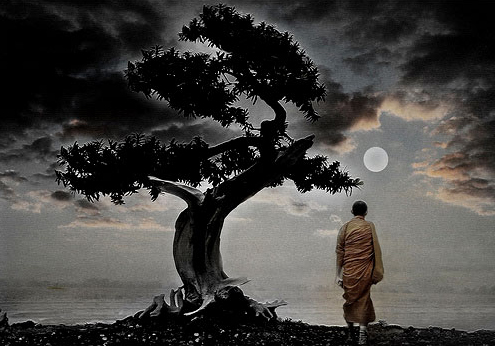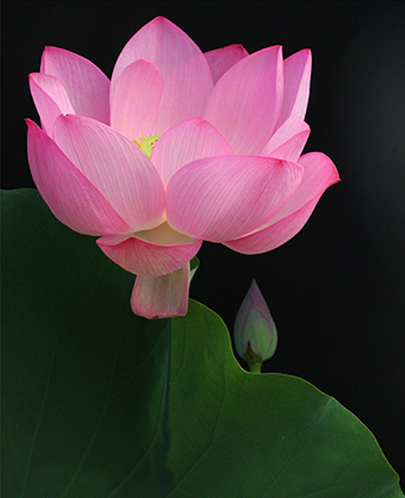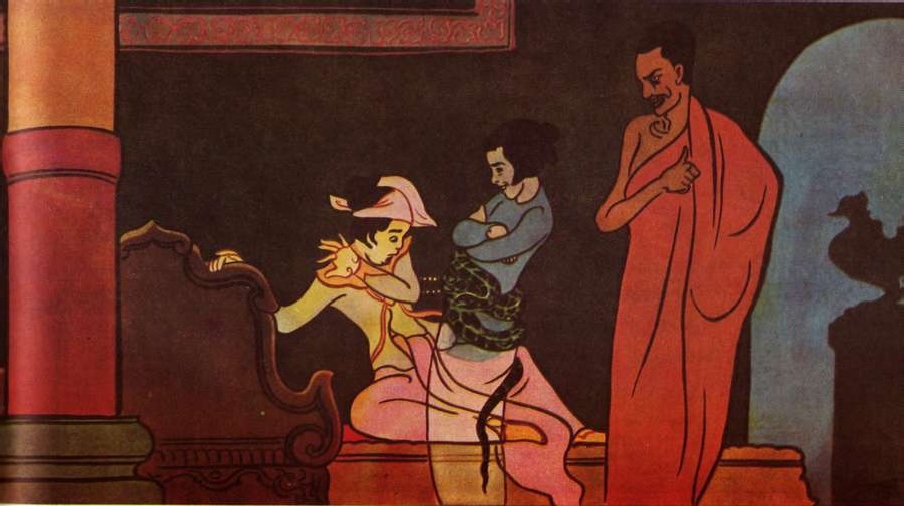
Prince Ajatasattu ordering that the soles of his father’s feet be cut open with a knife
47. Prince Ajatasattu ordering that the soles of his father’s feet be cut open with a knife
Venerable Devadatta instigated Prince Ajatasattu to kill his father King Bimbisara as he thought that, if the Prince became King in succession to his father, he would be able to take the place of the Buddha. The Prince was of the view that whatever his teacher Devadatta said was good, and was on his way to carry out his plan to murder his father. His father questioned him and the Prince admitted that he plotted to kill him because he wanted to become King. King Bimbisara gave up the throne in his favour.
After that, Venerable Devadatta told him that he would be able to rule without any risk of losing the throne only if his father was no longer alive. Prince Ajatasattu was impressed with this suggestion. But he did nor wish to kill his father straightway. So he caused his father to be cast in prison. At first, the Princes mother, the Queen was permitted to visit the King in person and he could lake his meals. But, finally, the Queen was not permitted to visit the King any more, and the King kept himself fit by walking up and down inside the prison. Ajatasattu, however, ordered that the soles of the King’s feet be cut open with a knife so that he could not walk.
THE ILLUSTRATED HISTORY OF BUDDHISM
by ASHIN JANAKA BHIVAMSA (Aggamahapandita)
Artist: U Ba Kyi | Link to this post


















